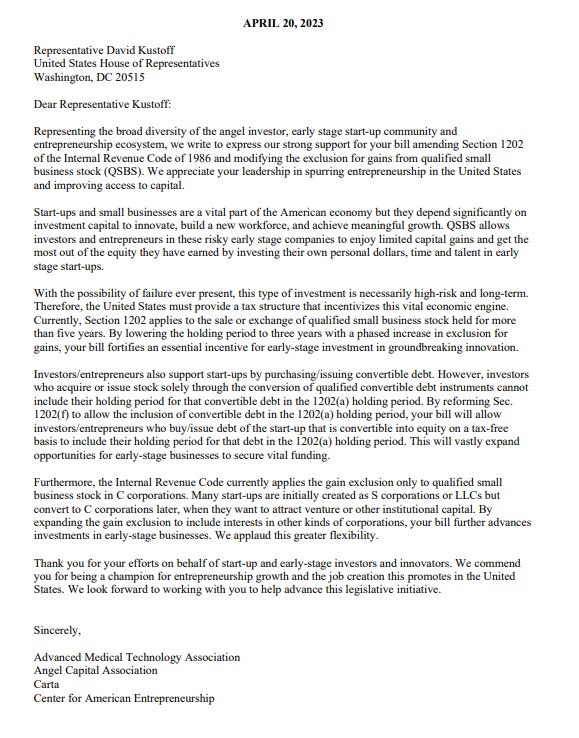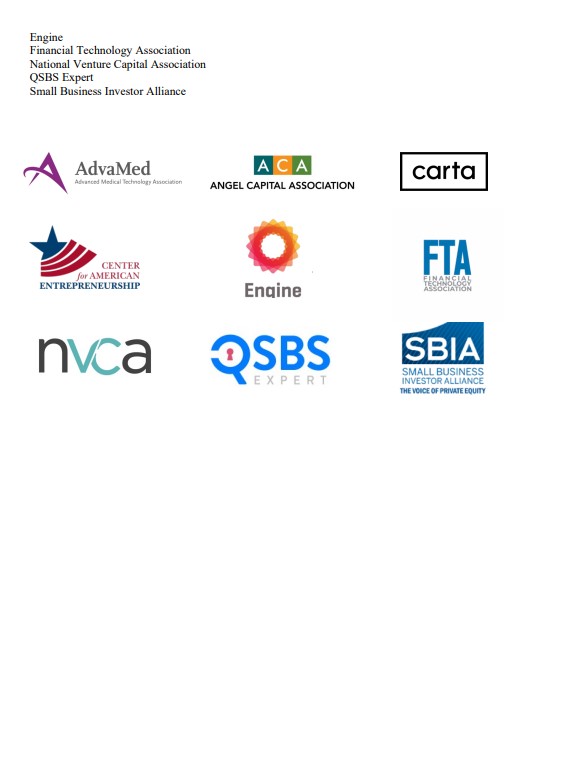Qualified Small Business Stock (QSBS) provides a great incentive to fuel innovation in the US, by providing eligible shareholders with an up to 100% capital gains tax exclusion. QSBS helps to drive capital to endeavors that are “too risky” for many to fund, but such early-stage businesses have consistently had a disproportionate impact on economic development and job creation.
Many legal questions exist within the QSBS regulations though and since IRC Section 1202 was first enacted in 2012, some of the provisions have not kept up with changes in the startup ecosystem over time.
Congressman David Kustoff of Tennessee recognizes these shortcomings and today has officially launched an effort to address them.
Along with many members of the angel investor, early stage start-up and entrepreneurial ecosystem, Rep. Kustoff introduced a bill today to help address several of these legal gray areas and expand access to the QSBS benefits, including:
- Reducing the required QSBS holding period from 5 years down to 3 years.
- Clarifying treatment for quasi-equity securities such as Simple Agreements for Future Equity (SAFEs)
- Expanding the benefits of QSBS to entities which initially were created as entities other than C-corporations
Senator Cornyn introduced the companion bill in the US Senate, noting “Small businesses play a critical role in our economy, and it’s imperative they have the financial freedom and flexibility to succeed…by expanding financing options, this bill would make it easier for startups and small businesses to grow, hire employees, and benefit the communities in which they operate.”
As noted by Patrick Gouhin, CEO of the Angel Capital Association, “Rep. Kustoff’s bill will drive the much-needed capital formation from early stage investors across the country that is needed to keep entrepreneurs moving forward with the innovative ideas and companies that will continue to drive economic growth for years to come.”
Please see a press release regarding the bill here, the full text of the proposed legislation here and a letter to Representation Kustoff regarding the legislation below.
This article does not constitute legal or tax advice. Please consult with your legal or tax advisor with respect to your particular circumstance.



